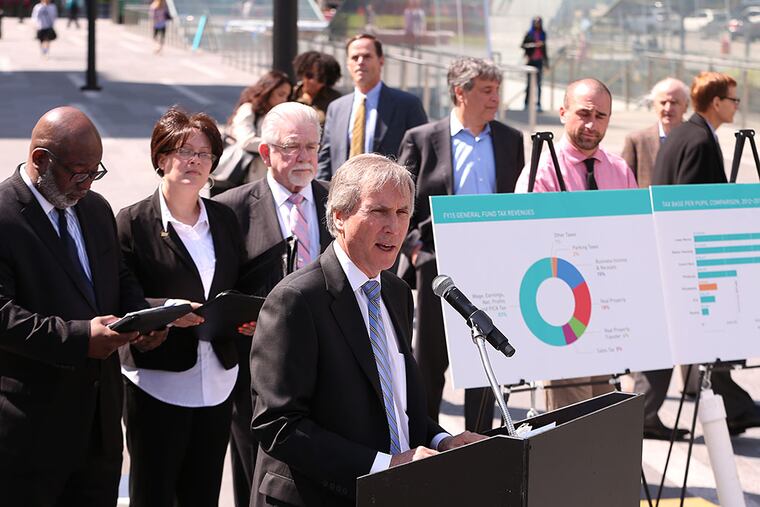Report: Philly could gain jobs with tax restructuring
A group of Philadelphia civic and business leaders on Labor Day released a report projecting 79,000 new jobs in the city over the next decade if politicians agree to a major revamp of the city's tax structure.

A group of Philadelphia civic and business leaders on Labor Day released a report projecting 79,000 new jobs in the city over the next decade if politicians agree to a major revamp of the city's tax structure.
The study, commissioned by the Philadelphia Growth Coalition, is the latest volley in an effort to build support for a change to the Pennsylvania Constitution that would allow the city to tax commercial real estate at a higher rate than residential property. The current tax rate of 1.4 percent applies to all real estate.
Under the proposal, spearheaded by Center City District CEO Paul Levy and Brandywine Realty Trust CEO Gerard Sweeney, the additional money raised from commercial real estate taxes would be used to cut wage and business taxes.
The city wage tax is 3.91 percent for residents and 3.48 percent for nonresidents. The business net income tax targeted by the coalition is 6.41 percent.
"We're overly dependent on a wage and business tax and, frankly, under-relying on a real estate tax," Levy said last week.
The Growth Coalition, which includes major landlords, chambers of commerce, and labor unions, argues that shifting some of the city's tax burden from what can easily leave (jobs and businesses) to what can't move (land and buildings) would make Philadelphia more competitive with the suburbs.
There were 555,695 private-sector jobs in Philadelphia at the end of last year, according to the Bureau of Labor Statistics' census of employers.
The Growth Coalition's report, by Econsult Solutions Inc. in Philadelphia, projected that under the status quo, including continued gradual wage-tax reductions, the city would add 18,000 jobs through 2026.
Philadelphia's tax mix has long been out of line with those in many other rival cities, a fact highlighted by city tax commissions in 2003 and 2009.
Philadelphia officials this year are counting real estate taxes for just 14 percent of overall revenue. In Boston, by contrast, real estate taxes are expected to contribute 68 percent of total revenue this year.
The expected sweetener for landlords who would have to pay higher property taxes would be greater demand for their properties from businesses that want to move into the city or expand there to take advantage of the city's improved tax climate.
A City Council resolution backing the Growth Coalition proposal passed on June 11, but there was one key holdout: Council President Darrell Clarke.
In a June 25 letter to State Rep. John Taylor (R., Phila.), who has been a key supporter and the coalition's point person in Harrisburg, he outlined his objections to the plan.
Clarke said he favored a constitutional amendment that would give the city the ability to tax residential and commercial real estate at different rates, but he rejected the requirement that other tax rates be cut.
"This wholly unnecessary modification could jeopardize the fiscal well-being of our municipal government," Clarke wrote.
Clarke was skeptical of Econsult's finding that the coalition's proposal would generate more long-term tax revenue for the city and its school district. A spokeswoman for Clarke did not respond to an email last week asking whether his position had changed.
Econsult's revenue and jobs projections are based on complicated estimates of how changes in tax policy affect behavior, in this case, businesses expanding in Philadelphia.
"Relatively modest differences in taxes or services or quality of life can have a larger impact than you might expect on where they live and work," said Richard Voith, president and principal at Econsult.
215-854-4651@InqBrubaker